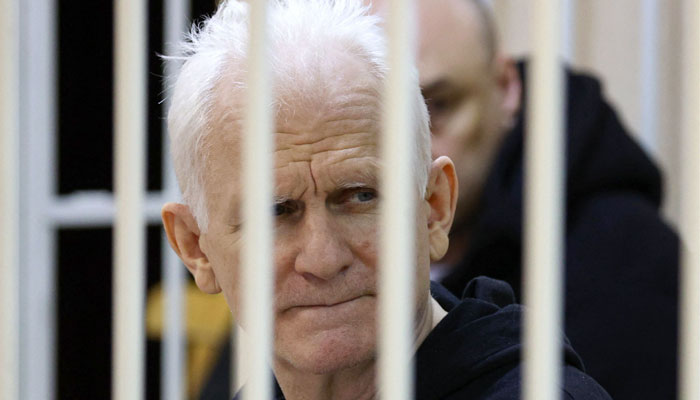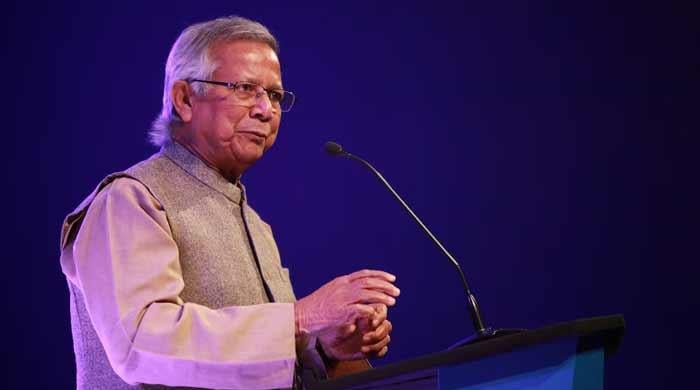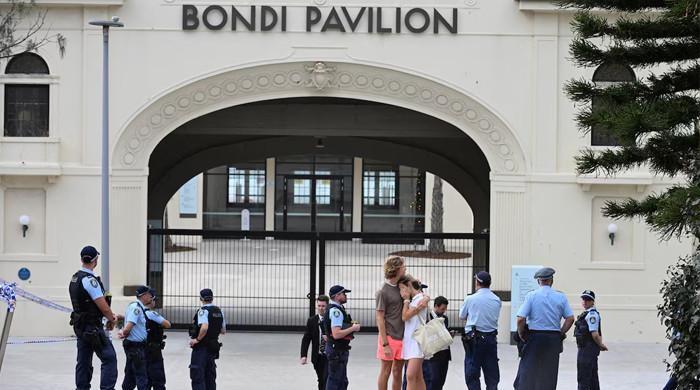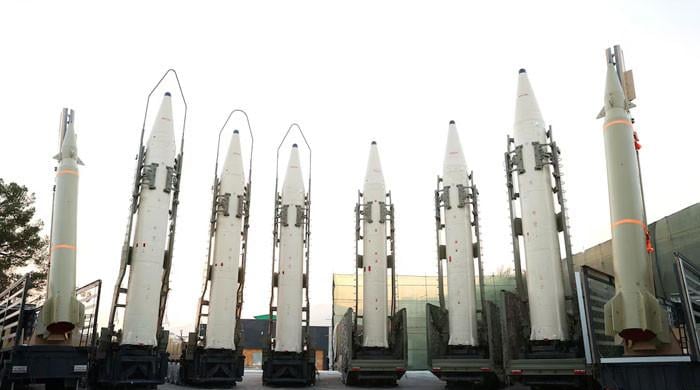Nobel Prize winner jailed for 10 years
Ales Bialiatski and his associates have been convicted of smuggling and financing "activities that grossly violate public order"
March 03, 2023

MOSCOW: Belarus on Friday handed a 10-year jail term to Nobel Prize-winning activist Ales Bialiatski, drawing immediate condemnation internationally.
Bialiatski, who founded the authoritarian nation's most prominent right group, has repeatedly run into trouble with security forces in Belarus, which is often described as "Europe's last dictatorship".
He was in the dock with two allies after they were jailed in the aftermath of historic demonstrations against the disputed re-election of Belarus strongman President Alexander Lukashenko in 2020.
The 60-year-old and his associates had been convicted of smuggling and financing "activities that grossly violate public order", said the Viasna (Spring) rights group founded by Bialiatski.
Bialiatski was on Friday handed a 10-year sentence, while co-defendants Valentin Stefanovich was given nine years in prison and Vladimir Labkovich was jailed for seven.
"These are very cruel sentences, for all of them," Bialiatski's wife Natalya Pinchuk said in comments released by Viasna. "The terms are horrific."
Labkovich's wife Nina said her family had not expected "a miracle."
"Still, this hurts very much. It's not possible to accept this," she added.
'Spring will come'
Co-defendant Valentin Stefanovich's wife Alina expressed hope that those who have persecuted the activists would one day be held to account.
"Spring will come," she said, citing her husband.
The defendants have said they were innocent of the charges.
A fourth defendant, Dmitry Solovyov, who was tried in absentia, was sentenced to eight years.
The terms drew immediate condemnation, with the UN saying that "the arbitrary arrest and detention of Belarusian human rights defenders on politically motivated charges are alarming."
German Foreign Minister Annalena Baerbock slammed the charges and proceedings as a "farce", saying the rights campaigners were being judged "simply for their years-long fight for the rights, dignity and freedom of the people of Belarus".
Bialiatski was among the three co-recipients of last year's Nobel Peace Prize, alongside Russian and Ukrainian human rights groups.
Bialiatski's organisation, which was founded in 1996, is Belarus's most prominent rights group, whose work has charted the increasingly authoritarian tendencies of Lukashenko and his security forces.
Lukashenko has ruled the country with an iron first for nearly three decades.
He is a staunch ally of Russian President Vladimir Putin and allowed Moscow to deploy troops to Ukraine from Belarus last February.
'Rights massacre'
Belarus witnessed a historic protest movement denouncing the controversial re-election of Lukashenko in 2020.
With the help of Putin, Lukashenko has cracked down hard on the opposition movement, jailing his critics or pushing them into exile.
Solovyov, who fled to Poland and was sentenced in absentia, called the trial "a propaganda spectacle" and "a massacre of human rights defenders."
"The fact that human rights defenders were in a cage and handcuffs during the trial shows the degree of cruelty with which the regime deals with opponents," he told AFP.
Solovyov called on the United States and the European Union to pile new sanctions on Lukashenko's regime.
Belarus's exiled opposition leader Svetlana Tikhanovskaya criticised the "fake trial" and urged supporters to "fight against this shameful injustice."
Tikhanovskaya, who lives in EU member Lithuania, herself faces a litany of charges including high treason and "conspiracy to seize power."
Prosecutors in Belarus are seeking a 19-year jail term for the 40-year-old opposition politician, who claimed victory in the 2020 presidential election.
Tikhanovskaya was part of a trio of women — along with Maria Kolesnikova and Veronika Tsepkalo — who spearheaded massive rallies against Lukashenko.
She ran for president in place of her husband, Sergei Tikhanovsky, a charismatic YouTube blogger who was arrested after galvanising the opposition and coining an insult for Lukashenko when he called him a "cockroach".
In 2021, he was found guilty of organising riots, inciting social hatred and other charges and sentenced to 18 years in prison.











